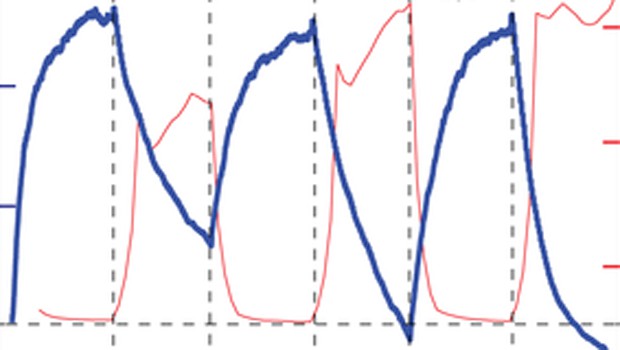
In the recent article by Fink et. al, the role of acetylcholine in synaptic renormalization and regulation of sleep is investigated.
The function of sleep is one of the greatest mysteries in contemporary neuroscience. Nearly every species of animal requires it, yet it is still not known why. One idea, known as the synaptic renormalization hypothesis, suggests that waking results in a global increase in the strengths of connections in the brain, a phenomenon which is unsustainable because stronger connections consume more energy and take up more space. The function of sleep, according to this hypothesis, is to downscale or “renormalize” connection strengths. While mounting experimental evidence confirms that sleep-dependent synaptic downscaling does occur, it is still not known what biophysical mechanism causes it. In this paper, the authors show computational results which indicate that the neuromodulator acetylcholine may have a key role to play in sleep-dependent synaptic downscaling. If confirmed experimentally, these findings will help to unravel the mystery of sleep.
Copyright: Creative Commons Attribution License.
Cover image: Modified figure from original publication.
References
Fink CG, Murphy GG, Zochowski M, Booth V (2013) A Dynamical Role for Acetylcholine in Synaptic Renormalization. PLoS Comput Biol 9(3): e1002939. DOI: 10.1371/journal.pcbi.1002939.
Stats
- Recommendations n/a n/a positive of 0 vote(s)
- Views 1481
- Comments 0